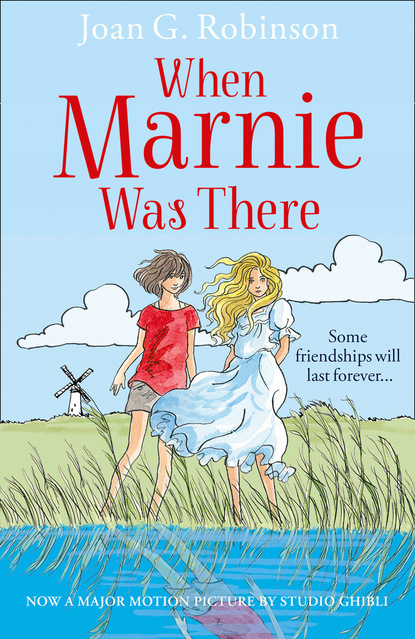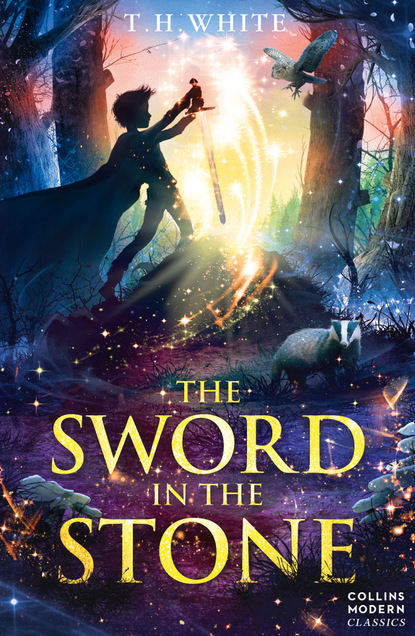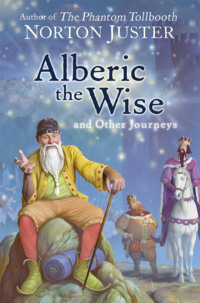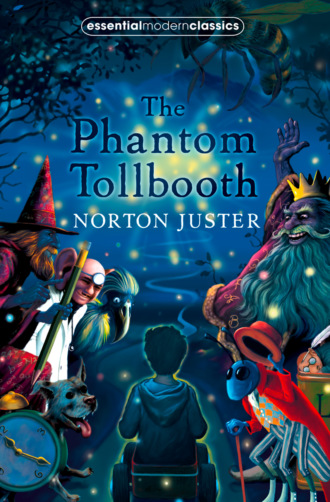
Полная версия
The Phantom Tollbooth


The
Phantom
Tollbooth
NORTON JUSTER
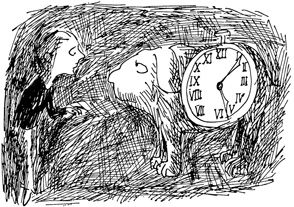

Copyright
HarperCollins Children’s Books HarperCollinsPublishers Ltd, 1 London Bridge Street London SE1 9GF
The HarperCollins Children’s Books website address is www.harpercollinschildrensbooks.co.uk
First published in the USA by Epstein & Carroll Associates Inc. 1961
And by Random House, Inc. 1964
First published in Great Britain by William Collins Sons & Co. Ltd 1962
This edition published by HarperCollins Children’s Books 2008
Copyright © 1961 Norton Juster
Copyright renewed 1989 by Norton Juster
Note from the author copyright © 1999 Norton Juster
Illustrations copyright © 1961 Jules Feiffer
Copyright renewed 1989 by Jules Feiffer
Why You’ll Love This Book copyright © 2008 Diana Wynne Jones
All rights reserved under International and Pan-American Copyright Conventions. By payment of the required fees, you have been granted the nonexclusive, nontransferable right to access and read the text of this e-book on-screen. No part of this text may be reproduced, transmitted, downloaded, decompiled, reverse engineered, or stored in or introduced into any information storage and retrieval system, in any form or by any means, whether electronic or mechanical, now known or hereinafter invented, without the express written permission of HarperCollins e-books.
Source: 9780007263486
Ebook Edition © APRIL 2012 ISBN 9780007370054
Version: 2019-03-29
Some Photographs were unavailable for the electronic edition.
HarperCollinsPublishers has made every reasonable effort to ensure that any picture content and written content in this ebook has been included or removed in accordance with the contractual and technological constraints in operation at the time of publication.
Dedication
To Andy and Kenny who waited so patiently
Contents
Cover
Title Page
Copyright
Dedication
Map
1. Milo
2. Beyond Expectations
3. Welcome to Dictionopolis
4. Confusion in the Market Place
5. Short Shrift
6. Faintly Macabre’s Story
7. The Royal Banquet
8. The Humbug Volunteers
9. It All Depends How You Look at Things
10. A Colourful Symphony
11. Dischord and Dynne
12. The Silent Valley
13. Unfortunate Conclusions
14. The Dodecahedron Leads the Way
15. This Way to Infinity
16. A Very Dirty Bird
17. Unwelcoming Committee
18. Castle in the Air
19. The Return of Rhyme and Reason
20. Goodbye and Hello
Keep Reading
Why You’ll Love This Book: by Diana Wynne Jones
About the Author
About the Publisher
Map


Chapter One MILO
THERE WAS ONCE a boy named Milo who didn’t know what to do with himself – not just sometimes, but always.
When he was in school he longed to be out, and when he was out he longed to be in. On the way he thought about coming home, and coming home he thought about going. Wherever he was he wished he was somewhere else, and when he got there he wondered why he’d bothered. Nothing really interested him – least of all the things that should have.
“It seems to me that almost everything is a waste of time,” he remarked one day as he walked dejectedly home from school. “I can’t see the point in learning to solve useless problems, or subtracting turnips from turnips, or knowing where Ethiopia is, or how to spell February.” And, since no one bothered to explain otherwise, he regarded the process of seeking knowledge as the greatest waste of time of all.

As he and his unhappy thoughts hurried along (for while he was never anxious to be where he was going, he liked to get there as quickly as possible), it seemed a great wonder that the world, which was so large, could sometimes feel so small and empty.
“And worst of all,” he continued sadly, “there’s nothing for me to do, nowhere I’d care to go, and hardly anything worth seeing.” He punctuated this last thought with such a deep sigh that a house sparrow singing nearby stopped and rushed home to be with his family.
Without stopping or looking up, he rushed past the buildings and busy shops that lined the street and in a few minutes reached home – dashed through the hall – hopped into the lift – one, two, three, four, five, six, seven, eight, and off again – opened the door of the flat – rushed into his room – flopped dejectedly into a chair, and grumbled softly, “Another long afternoon.”
He look glumly at all the things he owned. The books that were too much trouble to read, the tools he’d never learned to use, the small electric car he hadn’t driven for months – or was it years? – and the hundreds of other games and toys, and bats and balls, and bits and pieces scattered around him. And then, on the far side of the room, he noticed something he had certainly never seen before.
Who could possibly have left such an enormous package and such a strange one? For, while it was not quite square, it was definitely not round, and it was larger than almost any other big package he’d ever seen.
Attached to one side was a bright-blue envelope which said simply: FOR MILO, WHO HAS PLENTY OF TIME.
Of course, if you’ve ever received a surprise package, you can imagine how puzzled and excited Milo was; and if you’ve never received one, pay close attention, because some day you might.
“I don’t think it’s my birthday,” he puzzled, “and Christmas must be months away, and I haven’t been outstandingly good, or even good at all.” (He had to admit this, even to himself.) “Probably I won’t like it anyway, but since I don’t know where it came from, I can’t possibly send it back.” He thought about it for quite a while and then opened the envelope, but just to be polite. ONE GENUINE TURNPIKE TOLLBOOTH it stated – and then it went on:
EASILY ASSEMBLED AT HOME, AND FOR USE BY THOSE WHO HAVE NEVER TRAVELLED IN LANDS BEYOND.
“Beyond what?” thought Milo as he continued to read.
THIS PACKAGE CONTAINS THE FOLLOWING ITEMS:
One (1) genuine turnpike tollbooth to be erected according to directions.
Three (3) precautionary signs to be used in a precautionary fashion.
Assorted coins for use in paying tolls.

One (1) map, up-to-date and carefully drawn by master cartographers, depicting natural and man-made features.
One (1) book of rules and traffic regulations, which may not be bent or broken.
And in smaller letters at the bottom it concluded:
RESULTS ARE NOT GUARANTEED, BUT IF NOT PERFECTLY SATISFIED, YOUR WASTED TIME WILL BE REFUNDED.
Following the instructions, which told him to cut here, lift there, and fold back all around, he soon had the tollbooth unpacked and set up on its stand. He fitted the windows in place and attached the roof, which extended out on both sides, and fastened on the coin box. It was very much like the tollbooths he’d seen on family trips, except of course it was much smaller and purple.
“What a strange present,” he thought to himself. “The least they could have done was to send a motorway with it, for it’s terribly impractical without one.” But since, at the time, there was nothing else he wanted to play with, he set up the three signs:
SLOW DOWN APPROACHING TOLLBOOTH
PLEASE HAVE YOUR FARE READY
HAVE YOUR DESTINATION IN MIND
and slowly unfolded the map.
As the announcement stated, it was a beautiful map, in many colours, showing principal roads, rivers, and seas, towns and cities, mountains and valleys, intersections and detours, and sites of outstanding interest both beautiful and historic.
The only trouble was that Milo had never heard of any of the places it indicated, and even the names sounded most peculiar.
“I don’t think there really is such a country,” he concluded after studying it carefully. “Well, it doesn’t matter anyway.” And he closed his eyes and poked a finger at the map.
“Dictionopolis,” read Milo slowly when he saw what his finger had chosen. “Oh, well, I might as well go there as anywhere.”
He walked across the room and dusted the car carefully. Then, taking the map and rule book with him, he hopped in and, for lack of anything better to do, drove slowly up to the tollbooth. As he deposited his coin and rolled past, he remarked wistfully, “I do hope this is an interesting game, otherwise the afternoon will be so terribly dull.”


Chapter Two BEYOND EXPECTATIONS
SUDDENLY HE FOUND himself speeding along an unfamiliar country road, and as he looked back over his shoulder, neither the tollbooth nor his room nor even the house was anywhere in sight. What had started as make-believe was now very real.
“What a strange thing to happen,” he thought (just as you must be thinking). “This game is much more serious than I thought, for here I am riding on a road I’ve never seen, going to a place I’ve never heard of, and all because of a tollbooth which came from nowhere. I’m certainly glad that it’s a nice day for a trip,” he concluded hopefully, for, at the moment, this was the one thing he definitely knew.
The sun sparkled, the sky was clear, and all the colours he saw seemed to be richer and brighter than he could ever remember. The flowers shone as if they’d been cleaned and polished, and the tall trees that lined the road shimmered in silvery green.

WELCOME TO EXPECTATIONS said a carefully lettered sign on a small house at the side of the road.
INFORMATION, PREDICTIONS, AND ADVICE CHEERFULLY OFFERED. PARK HERE AND BLOW HORN.
With the first sound from the horn a little man in a long coat came rushing from the house, speaking as fast as he could, and repeating everything several times:

“My, my, my, my, my welcome, welcome, welcome, welcome to the land of Expectations, to the land of Expectations, to the land of Expectations. We don’t get many travellers these days; we certainly don’t get many travellers these days. Now what can I do for you? I’m the Whether Man.”
“Is this the right road for Dictionopolis?” asked Milo, a little bowled over by the effusive greeting.
“Well now, well now, well now,” he began again, “I don’t know of any wrong road to Dictionopolis, so if this road goes to Dictionopolis at all it must be the right road, and if it doesn’t it must be the right road to somewhere else, because there are no wrong roads to anywhere. Do you think it will rain?”
“I thought you were the Weather Man,” said Milo, very confused.
“Oh, no,” said the little man, “I’m the Whether Man, not the Weather Man, for after all it’s more important to know whether there will be weather than what the weather will be.” And with that he released a dozen balloons that sailed off into the sky. “Must see which way the wind is blowing,” he said, chuckling over his little joke and watching them disappear in all directions.
“What kind of a place is Expectations?” enquired Milo, unable to see the joke and feeling very doubtful of the little man’s sanity.
“Good question, good question,” he exclaimed. “Expectations is the place you must always go to before you get to where you’re going. Of course, some people never go beyond Expectations, but my job is to hurry them along whether they like it or not. Now, what else can I do for you?” And before Milo could reply he rushed into the house and reappeared a moment later with a new coat and umbrella.
“I think I can find my own way,” said Milo, not at all sure that he could. But, since he didn’t understand the little man at all, he decided that he might as well move on – at least until he met someone whose sentences didn’t always sound as if they would make as much sense backwards as forwards.
“Splendid, splendid, splendid,” exclaimed the Whether Man. “Whether or not you find your own way, you’re bound to find some way. If you happen to find my way, please return it, as it was lost years ago. I imagine by now it’s quite rusty. You did say it was going to rain, didn’t you?” And with that he opened the umbrella and walked with Milo to the car.
“I’m glad you made your own decision. I do so hate to make up my mind about anything, whether it’s good or bad, up or down, in or out, rain or shine. Expect everything, I always say, and the unexpected never happens. Now please drive carefully; goodbye, goodbye, goodbye, good…” His last goodbye was drowned out by an enormous clap of thunder, and as Milo drove down the road in the bright sunshine he could see the Whether Man standing in the middle of a fierce cloudburst that seemed to be raining only on him.
The road dipped now into a broad green valley and stretched towards the horizon. The little car bounced along with very little effort, and Milo had hardly to touch the accelerator to go as fast as he wanted. He was glad to be on his way again.
“It’s all very well to spend time in Expectations,” he thought, “but talking to that strange man all day would certainly get me nowhere. He’s the most peculiar person I’ve ever met,” continued Milo – unaware of how many peculiar people he would shortly encounter.
As he drove along the peaceful road he soon fell to daydreaming and paid less and less attention to where he was going. In a short time he wasn’t paying any attention at all, and that is why, at a fork in the road, when a sign pointed to the left, Milo went to the right, along a route which looked suspiciously like the wrong way.

Things began to change as soon as he left the main road. The sky became quite grey and, along with it, the whole countryside seemed to lose its colour and assume the same monotonous tone. Everything was quiet, and even the air hung heavily. The birds sang only grey songs and the road wound back and forth in an endless series of climbing curves.
Mile after
mile after
mile after
mile he drove, and now, gradually the car went slower and slower, until it was hardly moving at all.
“It looks as though I’m getting nowhere,” yawned Milo, becoming very drowsy and dull. “I hope I haven’t taken a wrong turn.”
Mile after
mile after
mile after
mile, and everything became greyer and more monotonous. Finally, the car just stopped altogether, and, hard as he tried, it wouldn’t budge another inch.
“I wonder where I am,” said Milo in a very worried tone.
“You’re…in…the…Dol…drums,” wailed a voice that sounded far away.
He looked round quickly to see who had spoken. No one was there, and it was as quiet and still as one could imagine.
“Yes…the…Dol…drums,” yawned another voice, but still he saw no one.
“WHAT ARE THE DOLDRUMS?” he cried loudly, and tried very hard to see who would answer this time.
“The Doldrums, my young friend, are where nothing ever happens and nothing ever changes.”
This time the voice came from so close that Milo jumped with surprise, for, sitting on his right shoulder, so lightly that he hardly noticed, was a small creature exactly the colour of his shirt.
“Allow me to introduce all of us,” the creature went on. “We are the Lethargarians, at your service.”
Milo looked round and, for the first time, noticed dozens of them – sitting on the car, standing in the road, and lying all over the trees and bushes. They were very difficult to see, because whatever they happened to be sitting on or near was exactly the colour they happened to be. Each one looked very much like the other (except for the colour, of course) and some looked even more like each other than they did like themselves.
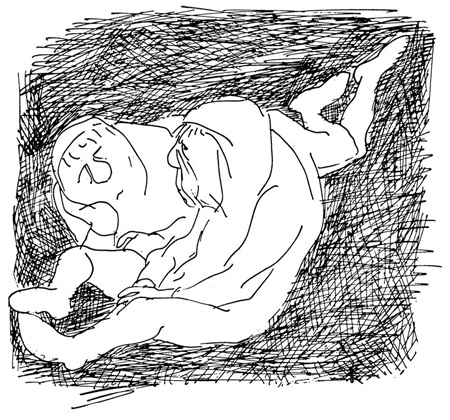
“I’m very pleased to meet you,” said Milo, not sure whether or not he was pleased at all. “I think I’m lost. Can you help me please?”
“Don’t say ‘think’,” said one sitting on his shoe, for the one on his shoulder had fallen asleep. “It’s against the law.” And he yawned and fell off to sleep, too.
“No one’s allowed to think in the Doldrums,” continued a third, beginning to doze off. And as each one spoke, he fell off to sleep and another picked up the conversation with hardly any interruption.
“Don’t you have a rule book? It’s local ordinance 175389–J.”
Milo quickly pulled the rule book from his pocket, opened to the page, and read, “Ordinance 175389–J: It shall be unlawful, illegal, and unethical to think, think of thinking, surmise, presume, reason, meditate, or speculate while in the Doldrums. Anyone breaking this law shall be severely punished!”
“That’s a ridiculous law,” said Milo, quite indignantly. “Everybody thinks.”
“We don’t,” shouted the Lethargarians all at once.
“And most of the time you don’t,” said a yellow one sitting in a daffodil. “That’s why you’re here. You weren’t thinking, and you weren’t paying attention either. People who don’t pay attention often get stuck in the Doldrums.” And with that he toppled out of the flower and fell snoring into the grass.
Milo couldn’t help laughing at the little creature’s strange behaviour, even though he knew it might be rude.
“Stop that at once,” ordered the fawn one clinging to his trousers. “Laughing is against the law. Don’t you have a rule book? It’s local ordinance 574381–W.”
Opening the book again, Milo found Ordinance 574381–W: “In the Doldrums, laughter is frowned upon and smiling is permitted only on alternate Thursdays. Violaters shall be dealt with most harshly.”
“Well, if you can’t laugh or think, what can you do?” asked Milo.
“Anything as long as it’s nothing, and everything as long as it isn’t anything,” explained another. “There’s lots to do; we have a very busy schedule –

“At 8 o’clock we get up, and then we spend
“From 8.00 to 9.00 daydreaming.
“From 9.00 to 9.30 we take our early midmorning nap.
“From 9.30 to 10.30 we dawdle and delay.
“From 10.30 to 11.30 we take our late early morning nap.
“From 11.30 to 12.00 we bide our time and then eat lunch.
“From 1.00 to 2.00 we linger and loiter.
“From 2.00 to 2.30 we take our early afternoon nap.
“From 2.30 to 3.30 we put off for tomorrow what we could have done today.
“From 3.30 to 4.00 we take our early late afternoon nap.
“From 4.00 to 5.00 we loaf and lounge until dinner.
“From 6.00 to 7.00 we dilly-dally.
“From 7.00 to 8.00 we take our early evening nap, and then for an hour before we go to bed at 9.00 we waste time.
“As you can see, that leaves almost no time for brooding, lagging, plodding, or procrastinating, and if we stopped to think or laugh, we’d never get nothing done.”
“You mean you’d never get anything done,” corrected Milo.
“We don’t want to get anything done,” snapped another angrily; “we want to get nothing done, and we can do that without your help.”
“You see,” continued another in a more conciliatory tone, “it’s really quite strenuous doing nothing all day, so once a week we take a holiday and go nowhere, which was just where we were going when you came along. Would you care to join us?”
“I might as well,” thought Milo. “That’s where I seem to be going anyway.”
“Tell me,” he yawned, for he felt ready for a nap now himself, “does everyone here do nothing”
“Everyone but the terrible watchdog,” said two of them, shuddering in chorus. “He’s always sniffing around to see that nobody wastes time. A most unpleasant character.”
“The watchdog?” said Milo quizzically.
“THE WATCHDOG,” shouted another, fainting from fright, for racing down the road barking furiously and kicking up a great cloud of dust was the very dog of whom they had been speaking.


“RUN!”
“WAKE UP!”
“RUN!”
“HERE HE COMES!”
“THE WATCHDOG!”
Great shouts filled the air as the Lethargarians scattered in all directions and soon disappeared entirely.
“R-R-R-G-H-R-O-R-R-H-F-F,” exclaimed the watchdog as he dashed up to the car, loudly puffing and panting.
Milo’s large eyes opened wide, for there in front of him was a large dog with a perfectly normal head, four feet, and a tail – and the body of a loudly ticking alarm clock.
“What are you doing here?” growled the watchdog.
“Just killing time,” replied Milo apologetically. “You see—”
“KILLING TIME!” roared the dog – so furiously that his alarm went off. “It’s bad enough wasting time without killing it.” And he shuddered at the thought. “Why are you in the Doldrums anyway – don’t you have anywhere to go?”
“I was on my way to Dictionopolis when I got stuck here,” explained Milo. “Can you help me?”


